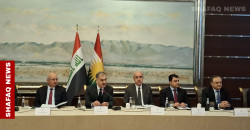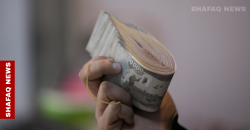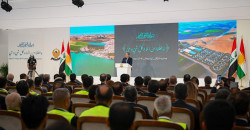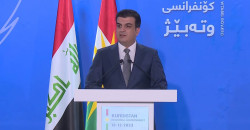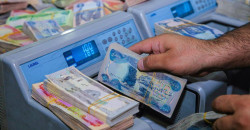Kurdistan challenges Baghdad on salary delays and unequal revenue policies
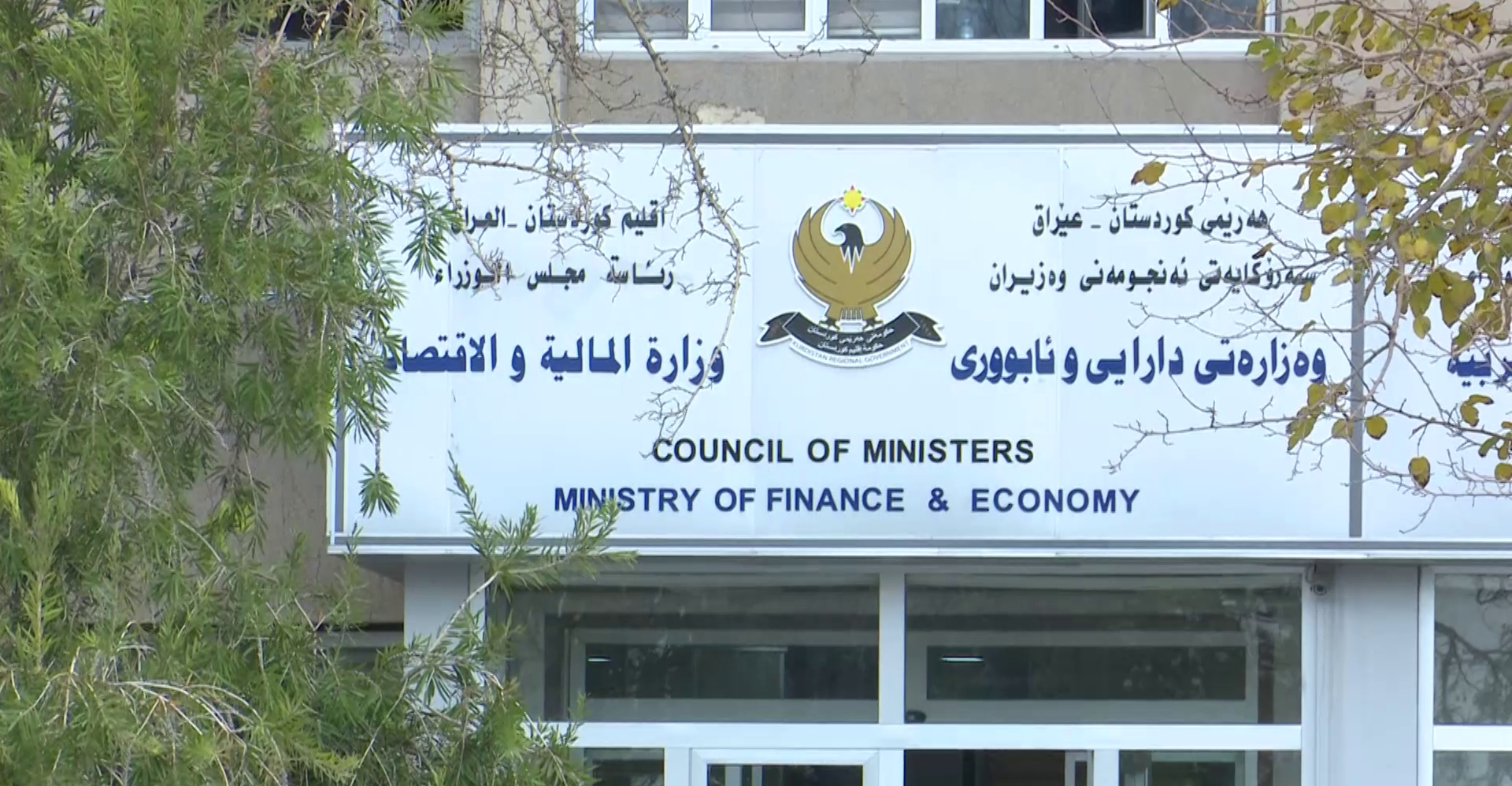
Shafaq News/ The Kurdistan Region’s Ministry of Finance and Economy has criticized the Federal Finance Ministry for failing to adhere to Federal Court rulings on salary disbursements for the Region’s public sector employees.
In a detailed statement on Tuesday, the Kurdish Ministry denied allegations of failing to submit non-oil revenues for 2024 and highlighted discrepancies in federal practices.
According to the Kurdish Ministry, “the Federal Finance Ministry transferred 10.03 trillion IQD (approximately $6.9 billion) into the Kurdistan Regional Government's (KRG) account at the Central Bank of Iraq, Erbil Branch.”
“However, this figure excluded 726 billion IQD (approximately $500 million) for pension contributions and income taxes,” the Ministry said, adding, “falling short of the 11.57 trillion IQD (approximately $7.9 billion) allocated under the 2024 Federal Budget by 822 billion IQD (approximately $570 million)”.
The Ministry also criticized the fragmented nature of salary disbursements, noting that funds were transferred in up to eight tranches per month, with significant delays sometimes stretching into subsequent months. “These delays,” the Ministry stated, “resulted in salary interruptions for some departments lasting up to five months, in violation of Federal Court rulings and constitutional provisions.”
The Ministry reported that by November 2024, it had submitted 4.35 trillion IQD (approximately $3 billion) in non-oil revenues, as outlined in its November trial balance shared with the Federal Finance Ministry.
An additional 399 billion IQD (approximately $275 million) was transferred to the Federal Ministry’s account in accordance with Article 29 of Financial Management Law No. 6 (2019) and a bilateral agreement requiring the Ministry to deposit 50% of non-oil federal revenues starting May 2024.
“The remaining revenues were allocated to operational expenses, investment projects, and addressing salary deficits caused by what it described as restrictive federal policies,” the Ministry clarified, pointing to the Federal Government’s decision to “halt allowances and promotions” for KRG employees while “continuing these payments” for federal employees.
Evidence cited by the Kurdish Ministry, including federal ministerial orders from August and September 2024, showed that allowances and promotions were ongoing in federal institutions. The Ministry argued that this demonstrated a clear policy of “double standards.”
In December 2024, the Ministry requested 677 billion IQD (approximately $465 million) to “cover salaries” for 820,268 individuals, including employees, retirees, and social welfare beneficiaries. “However, the Federal Finance Ministry allocated only 264 billion IQD (approximately $180 million), with no funds provided for retirees’ pensions,” the Ministry noted.
“This was despite an approved transfer of 430 billion IQD (approximately $295 million) for pensions.”
The Ministry questioned the equity of these decisions, asking, “Is it fair to deprive retirees of their entitlements? Can it be justified to allocate only one-third of the requested amount for the same number of beneficiaries?”
The Ministry highlighted its efforts to “digitize salary payments” through the "Hesabi" (My Account) project, an initiative supported by a Federal Supreme Court directive, noting that “the system allows salary payments via banks licensed by the Central Bank of Iraq.”
“To date, 750,000 employees have been registered, with 220,000 already receiving their salaries through this platform,” the Ministry added.
The Ministry concluded its statement by inviting “any fact-finding committee, whether international or Iraqi,” to investigate the matter and reaffirmed its openness to scrutiny. It also referenced “prior cooperation” with both federal and regional audit bureaus to demonstrate its commitment to transparency.
The statement ended with a pointed question that encapsulated the Region’s grievances: “Are we Iraqi citizens?”
